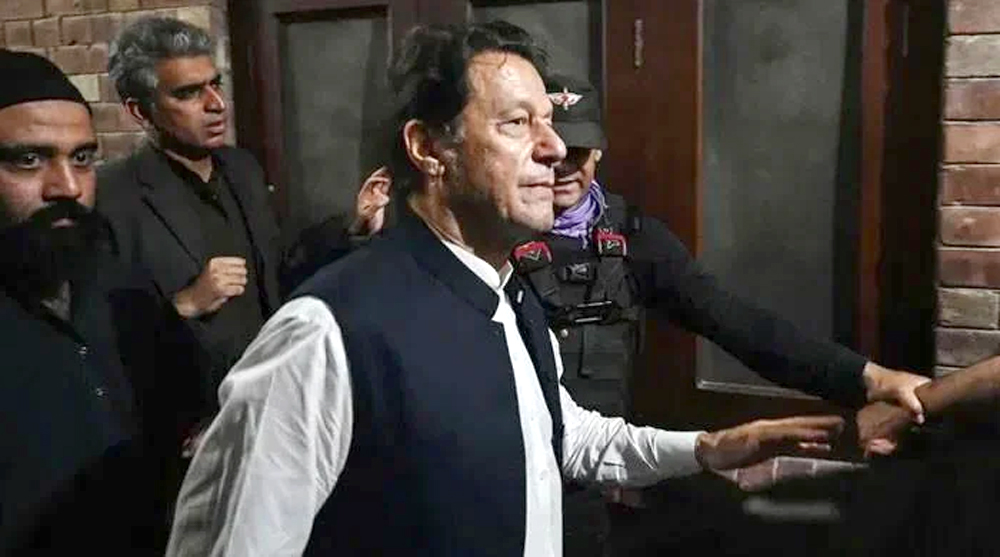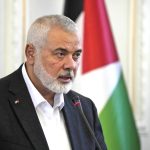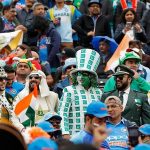Pakistan Tehreek-e-Insaf (PTI) founder Imran Khan has expressed his willingness to engage in dialogue with the Pakistan Army, stating that he is ready to negotiate if the military appoints a representative. He clarified that his previous criticism of the army was not accusations but rather “criticism,” a hallmark of democracy.
Speaking to journalists in the courtroom of Adiala Jail, Rawalpindi, Imran likened the army to a “misbehaving child” and said that criticism is necessary for improvement. He emphasized that he has never made accusations against the army, only expressed his opinions.
Khan reiterated that he only offered criticism when asked about recent statements that suggested he wanted to improve relations with the army while also criticizing its leadership.
He affirmed that the military isn’t dependable and ought not be protected from investigation. Khan further expressed that Overall Zia ul-Haq was behind the execution of Zulfikar Ali Bhutto and General Yahya Khan was answerable for the fall of Dhaka.
He addressed assuming that analysis of the military ought to be quieted in the event that it takes part in severe activities.Regarding negotiations with political parties, Khan questioned the legitimacy of the “Establishment’s” representatives, including Mohsin Naqvi and the SIFC.
He claimed that an undeclared martial law exists in the country and Naqvi is acting as their representative. He stated that he had given Mahmoud Khan Achakzai a mandate for negotiations but would be willing to talk if the other side nominates a representative.
He categorically stated that he would never engage in talks with Mohsin Naqvi, accusing him of orchestrating the mistreatment of PTI members and being responsible for the death of a “shadowy figure.” He asserted that Naqvi will not be able to escape the consequences of his actions.
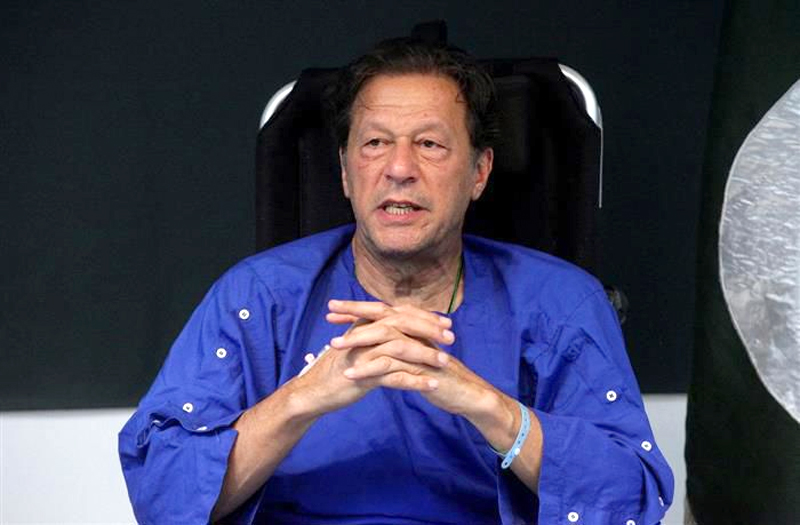
Imran approaches court to prevent being handed over to army
Khan, through his lawyer Uzair Karamat Bhandari, filed a petition in the High Court, naming the federal government and the Inspector Generals of Police of all four provinces as respondents.
In his petition, Khan expressed concerns about the possibility of being handed over to the army in connection with the May 9 cases.
He contended that any potential capture ought to be made by regular citizen courts and mentioned the court to give a request forestalling his exchange to military care.
Prior, Previous top state leader Imran Khan has conceded that he had required a ‘quiet dissent’ at the General Base camp (GHQ) of the Pakistan Armed force in the post city before his capture on May 9.
The former prime minister stated to journalists in an informal conversation at the Adiala Jail that prior to his arrest, he had instructed members of his party to organize a peaceful protest at the GHQ.
This is likely whenever the previous head of the state first confessed to requiring the dissent outside the delicate area following his capture in the join case.
The former prime minister also accused the authorities of fabricating witness testimonies against him in the May 9 cases.
He mentioned that he had named former Inter-Services Intelligence chief Lt Gen (retd) Faiz Hameed when he was shot in Wazirabad, but no one had protested or vandalised property at the time. Khan alleged that his house was attacked on March 14 and he was attacked again at the Judicial Complex on March 18 despite assurances from the lawyers that they would cooperate with the investigation.
“Our peaceful protest has been labelled as rebellion,” the former prime minister said and added that if the protesters were not peaceful, party leader Yasmin Rashid would not have stopped people from entering Jinnah House.
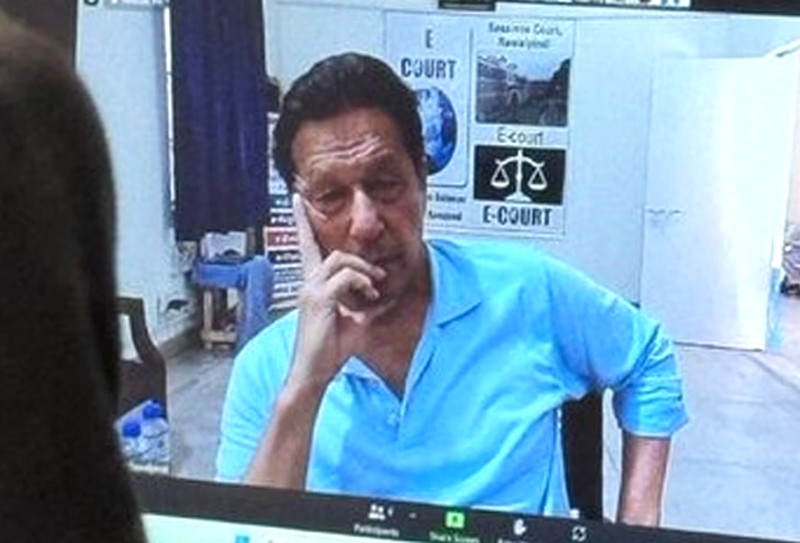
Imran said: “I ask the chief justice why the hearing on our May 25 petition is not taking place.”
He alleged that a one-sided case was being heard in the Supreme Court and that his party workers were currently being held in military jails. Khan claimed that there were plans to send him to a military court on the May 9 cases as well.
The former premier also condemned the raid at the party’s headquarters in Islamabad.
When asked, he said that it would be better to impose “martial law” in the country than a technocrat setup. He reiterated that “undeclared martial law” was enforced in the country.
Khan has claimed that the situation in Khyber Pakhtunkhwa was currently out of control, with the public mood being highly charged.


